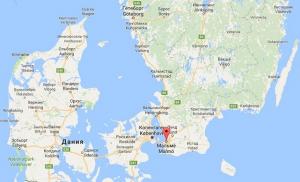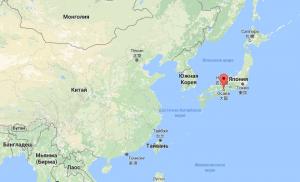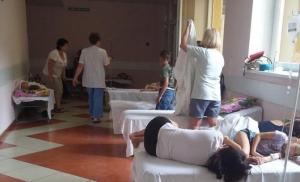Second higher education, what specialties. Second higher education: the most popular areas
In the Law “On Education” Russian Federation” it is said that there is no free education in Russia, except for budget revenues. However, there are benefits under which an applicant can receive free higher education.
Tuition is paid both by the students themselves and by organizations that send employees to study in order to improve their skills.
The payment amount depends on:
Individual training plan. To obtain a second higher education, the student retakes some disciplines. If the number of exams is high, then a fixed amount is paid, which is initially specified in the contract, regardless of the number of disciplines. Also depending on the number of hours (how many hours the student studied, how much he paid). Such rules are also prescribed in the contract.
The proposed form of training. These can be: daytime; correspondence and evening.
All of the above factors different prices training. For many applicants, the payment process is important, since you can pay the entire amount at once, by semester or for each month of study.
Citizens who:
- received their first diploma from a military educational institution. Then you can enter the university on a budgetary basis, and this is stated in the law “On the Status of Military Personnel.”
- signed a contract and served in the army for at least 15 years. Such citizens have the right to a second higher education, and it does not matter what profession or specialty they had before.
In addition, many preferential categories have the right to write an application for a reduction in fees for a second higher education. These could be combatants (in hot spots); citizens who took part in the liquidation of the consequences of the Chernobyl accident (ChNPP); some people who received honors.
Important! Citizens who have benefits for free education do not have the right to shorten their study period. A diploma can only be obtained when the full course of study has been completed.
How to get a second higher education for free without benefits
If you are not one of the beneficiaries mentioned in the law, do not despair, as there are other ways to obtain a free second higher education. To do this, consider two guaranteed methods:
Method one: payment by the employer. Often, an enterprise lacks valuable personnel and therefore, if an employee has proven himself to be a highly qualified specialist in a certain field, he is sent for additional training. After all, then the management will be able to offer the employee a more promising job with appropriate pay. At the same time, the employer takes full responsibility for financing the training. However, the employee must work for the company for at least 5 years.
Important! It is worth considering the fact that if the employer pays for training for an employee, an agreement is concluded that states how many years after receiving the diploma the person must work for the company. If a student leaves the university on his own initiative or is expelled from the university, the student is obliged to pay compensation to the authorities in the amount that was paid for training.
Method two: receiving a grant. There are many funds where you can receive a grant for study, regardless of the number of diplomas that the student already has. However, you will need to prove that you are worthy of the grant.
Admission to master's programs on a budget basis
A master's degree is a level of higher professional education that comes after a bachelor's degree, that is, the level of qualifications increases based on the first education. The student has the right to enroll in a master's program on a budget basis.
If a student has incomplete higher education (only three courses have been completed), then you can enroll in another specialty for free, but studies begin from the first year.
Backup options for obtaining a second higher education
If for some reason the above methods do not suit you, then you can “cheat” a little. There are two options for this:
First: It is necessary to show the admissions committee a diploma of first education, and simply submit the documents that are required from schoolchildren, this also includes a certificate. Now you can apply to the budget on the same basis as other applicants.
Second: receive two degrees at the same time. Study full-time at one university, and part-time at another. Thus, the student will receive two diplomas almost at the same time.
Second higher education at half price
If you still can’t study for free, try to at least reduce the amount. There are the following options for this:
- Payment for training in half with the employer. If the company really needs such specialists, the management will make concessions and help them obtain a specialty in a certain area.
- Studying is part-time, since its cost is much cheaper than full-time study.
- Studying in another city. As a rule, in each city or region, the amount of tuition for the same specialty differs significantly.
Conclusion
As you can see from the article, it is quite possible to get a second degree for free. It is not necessary to have special benefits or seek a grant. It all depends on the student himself, his desires and capabilities.
Free second higher education - benefits and opportunities for Russian students updated: October 29, 2019 by: Scientific Articles.Ru
Postgraduate education is a popular practice among both recent university graduates and experienced professionals. The former often understand that after school they were hasty in choosing a profession and do not want to work in their specialty. Older people face other problems:
- previously acquired knowledge is outdated;
- the profession has become worse paid;
- Career advancement requires an appropriate diploma.
If you want to change your qualifications, we will help you decide on the direction and give useful tips. And if you want to learn about interesting student life hacks, subscribe to our telegram channel.
Form of study
The main problem that people face when deciding which second higher education is best to get is the form of education: correspondence, distance learning or full-time? Each option has its own advantages.
Correspondence study allows you to combine study with work, only occasionally coming to sessions. Distance learning does not require presence at the university at all - the entire learning process takes place over the Internet. The full-time course allows you to gain a larger amount of knowledge and better learn a new direction. Therefore, if you choose a new industry, it is more useful to study full-time to understand the intricacies of the specialty. If your goal is a diploma, and you are ready to acquire knowledge on your own, the correspondence form is suitable.
Many leading universities in Russia offer special programs where you can get a second higher education remotely.
Payment
Applicants are often concerned about the question of whether a second higher education can be obtained for free. This is only possible if the applicant served in the army on a contract basis for at least 3 years or received his first education at a military university. But if the employer requires a new diploma, then options are possible when the company pays for it.
Duration
In Russia there are two levels of higher education: bachelor's degree (3-4 years) and master's degree (2-2.5 years). Therefore, how many years to receive a second higher education is up to you to decide. More often, the choice is made in favor of a master's degree, since studying there takes less time. As a rule, a master's degree is chosen to obtain it due to its short deadlines. But if you are aiming to go through the learning process from start to finish, to learn the profession from the very beginning, it is better to start with a bachelor’s degree.
Admission
If the question: “Is it worth getting a second higher education?” If you answered in the affirmative, then you can prepare for admission. To do this you need:
- decide on the form, duration and direction of training;
- choose a university;
- read the admission rules.
It will indicate the exams that the applicant needs to pass and a package of documents to provide to the admissions committee. Often such a package includes a motivation letter - we have already written about how to prepare this document.
Areas of study
Information Technology
The most popular and highly paid industry today. Unlike economists and lawyers, the “boom” for IT specialists has not yet passed and the need for these specialists will remain high for another 5-7 years. But the problem is that specialized IT offices, IT departments of organizations and enterprises no longer require just testers, system administrators or software engineers, but specialists of a higher level. To become such a professional, it is not enough to complete a master’s degree in IT:
- you need to have basic knowledge;
- choose a specific specialization;
- hone your skills and abilities in it by reading modern literature, solving practical problems and attending trainings and webinars.
In addition, most employers in the IT industry do not need a diploma, but real knowledge, so if you definitely decide to retrain as an IT specialist, we advise you not to look for a university, but to take good courses.
Pedagogy
It happens often. that those who, after graduating class, did not intend to return to school as a teacher, over time understand that the teaching profession has many advantages. Among them:
- stability;
- social security,
- public respect,
- paid summer vacation,
- ample opportunities for additional income (tutoring, coaching, assistance in preparing student papers).
But it is impossible to get a job at a school or university without a pedagogical diploma, so the question arises of how to get a second higher pedagogical education.
To do this, you need to decide on the form of study, choose a university and pass entrance exams.
You can enroll in a master's program in a pedagogical specialty by presenting an existing bachelor's, master's, or specialist diploma in any field, passing English, pedagogy, and a special subject.
After this, 2-2.5 years of training await you, and you are a certified teacher.
Accounting
Unlike pedagogy, mastering all the intricacies of the profession of an accountant or economist is quite difficult. If you do not have an appropriate bachelor's degree, then there is a risk that you will not even be able to pass the entrance exam to a master's program. Therefore, we advise you to prepare carefully:
- study examination programs;
- attend consultations;
- take specialized courses.
The latter, moreover, will help you understand exactly whether you have the ability for this matter and whether it is worth going to master the intricacies of debit and credit or, perhaps, choosing some other industry - for example, the profession of a marketer.
Marketing
This profession also belongs to economics, but, unlike the profession of an accountant, it is more creative and creative. The task of a marketer is not just to analyze the company’s performance indicators, but to find ways to improve them by promoting goods and services. Create creative advertising, rebrand, do a cool promotion - all this is the responsibility of a marketer.
To master this profession, a master's degree is quite enough, and employers who today lack innovative-thinking employees will be happy to hire a certified specialist.
Jurisprudence
If you are going to get a second higher legal education, you must be prepared for the fact that after graduation it will not be easy to find a job in your specialty. Unlike the early 2000s, there are now more lawyers than jobs for them, and you will have to compete with other candidates for a job with good conditions.
Therefore, getting a second degree in this field makes sense when you need it to advance in an existing job: from scratch after a master’s degree in law, it is very difficult to find a job with high earnings.
Journalism
This creative field of activity attracts many, but obtaining an additional diploma in this profile is futile. Media editors note that a journalist’s diploma does not at all guarantee that a person is suitable for this profession and therefore it plays almost no role in employment. Others valued:
- the ability to write brightly and interestingly;
- find exclusive information;
- establish contacts;
- promptly be on the scene.
This will not be taught in a master's program in journalism, and therefore it is better not to waste time studying there, but to complete professional courses and gain experience.
At the second higher level, other problems await. Having become unaccustomed to the rhythm of student life, many do not have time to prepare tests or essays on time. Don't despair, temporary difficulties are not a reason to give up your dreams. The student assistance service will come to your aid. Specialists will help you not to get lost in a new direction and to submit tests, essays, and coursework on time.
Make an informed choice, don’t be afraid to sit down at your desk again and become a sought-after specialist in just a couple of years.
As a study conducted some time ago by the National Research University Higher School of Economics showed, almost every federal district of the country experienced an increase in the number of students wishing to obtain a second higher education.
What about them? Education in Italy
“He studied in Italy” - most Russians are familiar with this phrase from the classic novels of the nineteenth century and the biographies of great sculptors, painters and opera singers. The country where Michelangelo, Leonardo da Vinci, Verdi, Rossini, Caruso and others lived and worked is traditionally perceived as the alma mater of the greatest artists. However, the history of education in Italy is much broader and deeper.
Olga Ivanova
According to Rosstat, the overwhelming majority of students (66.5% of men and 70% of women) re-entered universities before the age of 30, about 20% of people are from 31 to 40 years old and about 6% are over 40 years old.
It is easy to see that a second higher education is becoming increasingly in demand. According to VTsIOM, 66% of respondents today express confidence that it is necessary to constantly improve the level of their qualifications. At the same time, 23% believe that this should be done annually, once every three years – 26% and once every 5 years – 17%.
And most large number of people who are confident in the need to constantly improve their skills, among people with higher education – 86%. What brings already experienced specialists back to the student bench?
1. The labor market’s need for universal specialists
Increasingly, employer vacancies include, among other requirements, two higher education degrees. Some employers have a vague idea of why they need such a specialist, but following the trends of the times, they are looking for such a specialist, which gives rise to jokes about the cleaner-economist-toastmaster-diver-analyst. Others really need a specialist who understands not only economics, but also law, or a marketer with knowledge of psychology.
Ivan, 27: “At work, where there was no architect, I realized that a programmer without the ability to design architecture is weak and dependent. I decided to correct this shortcoming. To some extent it worked. Unfortunately, in addition to the general aspects, there are also a great many small areas. Nobody can teach you everything. You can probably learn programming endlessly.”
2. Desire for career growth
Sometimes a higher position requires new knowledge and skills, which becomes an incentive to get another diploma. But if the second education runs counter to the candidate’s professional path, this may even become a disadvantage.
Olesya, 37: “I worked in my specialty for quite a long time, but at one point I decided to change my profession to a more “feminine” one due to dissatisfaction with my career, and left production to become a lawyer.”
3. The desire to change profession
About 40% of students re-enter the university in order to change their qualifications. This is often due to disappointment in the first specialty received. After all, at the age of 17–18, most applicants find it difficult to choose a profession for life, and parents, guided by ideas about what is best, force their children to enroll in “prestigious” faculties. In addition, the acquired specialty may lose its relevance and attractiveness and encourage a person to acquire new knowledge.
Alla, 42: “There was no work in my specialty at my new place of residence. An interesting vacancy was offered, but in a completely different field of activity. I learned with interest again.”
4. Expectations of a higher salary
Many students have high hopes for a second diploma, since, in their opinion, it guarantees a more substantial reward for their work. If you have truly gained the necessary knowledge and are ready to take on more responsibility at work, then this is your option. Otherwise, the second crust will go to the stack of other documents.
Egor, 31: “I worked for six years as a design engineer at a large enterprise, but at some point I realized that the current salary did not suit me and I wanted to use my communication skills. I moved to the sales department for a much higher salary, however, with the condition that I would get a second degree at the Faculty of Economics.”
5. The pursuit of knowledge
Knowledge may become outdated and lose relevance, and some specialists want to understand related issues. Sometimes a person develops a hobby that becomes his life’s work, and he goes back to school to acquire the necessary knowledge. And in the end, there are people who want to constantly improve themselves. And it doesn’t matter to them whether they can apply the acquired knowledge in practice or not, the main thing is to broaden their horizons.
Yulia, 46: “For as long as I can remember, learning something, seeing or learning something new has always attracted me. Working on yourself and being satisfied with the results of this work... It’s like a love of travel.”
6. Prestige in society
Some people go for a second higher education or a Ph.D. because it is fashionable. They think that having a lot of regalia on a business card will automatically raise their authority and make others listen to them. One of my classmates defended his degree and even worked for some time in a low-paid but high-profile position at a university solely in order to have every right to write all his regalia on a business card. Indeed, some people are influenced by such an impressive list of professional advantages.
7. The desire to earn praise
If a child in the family was constantly told that love must be earned, especially by academic success, then at school he will study with only “A’s”, worry seriously about the slightest “B”, then enter a good university, according to Upon completion he will receive a red diploma. But this turns out to be not enough. The need to prove to family, friends and friends that one is needed, important and the desire to earn praise motivates such a person to receive a second or third higher education, and to attend all kinds of courses.
8. Infantilism
It's certainly nice to be a lifelong student. In this case, the thirst for knowledge is replaced by the desire to be in this special atmosphere, and studying is perceived as a get-together or communication based on interests. Such a student learns without much effort and is quite happy with “C” grades. He wants to push back the moment of going to work as far as possible and, in response to justified complaints, say that he is studying! This is some kind of attempt to escape responsibility when you need to make decisions on your own.
9. The desire to arrange your personal life
It’s not such a common reason for getting a second higher education, but it still happens. Enrolling in another university or taking new courses is another way to get acquainted, since the student environment involves communication, and, in addition, you can take a closer look at the person you like. Often this path is chosen by those who studied at traditionally “youthful” or “girlish” faculties, for example, in aviation or pedagogy.
Obtaining a second higher education is quite an important step. Ask yourself honestly what you will gain after graduating from a second university besides a diploma. If you have decided on your goals, then consider several universities, the best accredited ones, and programs in the chosen specialty in each of them.
Don’t forget to look at the subjects included in the program and the number of hours of training, otherwise, instead of new knowledge, you risk taking the same discipline for the second round. If you are interested in several universities, collect feedback on the quality of education in your chosen specialty, teaching staff and learning process. This will narrow your search and help you better determine your priorities. And whatever you choose, let it open up new horizons for you!
What is a second higher education?
Second higher education has recently become so popular that almost every Russian university has a special department of second higher education, and the list of offered areas has expanded significantly. If previously universities could only offer “second higher education in law” or “second higher education in economics,” now you can find “second higher education” programs for every taste.
Despite the diverse interests of those entering the second higher education, the leading positions in the ranking of the most popular ones have been occupied by the same areas for several years.
| 1st place | |
| 2nd place | |
| 3rd place | |
| 4th place | |
| 5th place | |
| 6th place | |
| 7th place | |
| 8th place | |
| 9th place | |
| 10th place |
Undoubtedly, legal specialties come first. Legal education as a second higher education is most often chosen by those who started running their own business and felt a significant lack of knowledge in solving legal issues. Many come for a second legal education in order to retrain and start a career as a lawyer or attorney. Now this is in fashion and can significantly improve your financial situation.
Economics education is in second place in popularity. In the ranking of the most popular areas of the “second tower” it occupies four positions at once. Of the numerous economic specialties, students of the faculty of second higher education most often choose accounting, analysis and audit, management, personnel management And marketing. To obtain a second higher education in economics, those who are going to find a job in a bank, insurance company, auditing firm, government agencies or at a manufacturing enterprise, where economic education is one of the main criteria when selecting employees, enter the university.
Information technology occupies the next position in the ranking. Fashion and, most importantly, the demand for specialists in this field is growing every day. Now, in the era of rapid development of computer technology, not a single enterprise can do without a programmer, electronics engineer, web programmer, IT manager or database administrator. Therefore, all those who once graduated from a university with a specialty related to computer science and programming can now update their knowledge by receiving a second higher education, and it is very profitable to get a job in the country’s leading companies.
Slightly lower in the ranking are the humanities. Their students often choose them as a second higher education in order to expand their own knowledge in the field of psychology, philology and theology and feel more confident professionally.
Quite often, service sector specialties are in demand among students of the faculty of second higher education. Basically, tourism is chosen as the second higher education. This is primarily due to the active development of the tourism industry in recent years.
Tenth place is occupied by education and pedagogy. As practice shows, young mothers or those who are going to devote their lives to raising children come for a second pedagogical education.













